The Department of Health today reported that an adult and a child are currently recovering after being diagnosed with meningococcal disease. The two cases are not linked and one was due to serogroup Y, the other to serogroup B. This brings the number of reported cases of invasive meningococcal disease in 2019 to 18. Of the 18 cases, six have been serogroup B, six serogroup W, five serogroup C and one serogroup Y meningococcal infections.
Meningococcal disease is an uncommon, life-threatening illness caused by a bacterial infection of the blood and/or the membranes that line the spinal cord and brain, and occasionally of other sites, such as the throat, lungs or large joints.
A vaccine to protect against four serogroups of the meningococcal disease (serogroups A, C, W and Y) is offered free to all children in WA at 12 months of age, with a catch-up program for children who have not yet received the vaccine and who are aged 1-4 years. Due to a higher rate of meningococcal disease in Aboriginal people in WA, Aboriginal children are offered vaccination from age 6 weeks to 4 years of age. In addition, the vaccine is offered to all teenagers in Year 10, with a catch up program for 15-19 years.
Meningococcal bacteria are not easily spread from person-to-person. The bacterium is present in droplets discharged from the nose and throat when coughing or sneezing, but is not spread by saliva and does not survive more than a few seconds in the environment.
Meningococcal bacteria are carried harmlessly in the back of the nose and throat by about 10-20 per cent of the population at any one time. Very rarely, the bacteria invade the bloodstream or tissues and cause serious infections.
Sometimes – but not always – symptoms may be accompanied by the appearance of a spotty red-purple rash that looks like small bleeding points beneath the skin or bruises.
Symptoms of invasive meningococcal disease may include high fever, chills, headache, neck stiffness, nausea and vomiting, drowsiness, confusion, and severe muscle and joint pains. Young children may not complain of symptoms, so fever, pale or blotchy complexion, vomiting, lethargy (inactivity), poor feeding and rash are important signs.
Although treatable with antibiotics, meningococcal infection can progress very rapidly, so it is important that anyone experiencing these symptoms seeks medical attention promptly.
With appropriate treatment, most people with the disease recover, although around 5 to 10 per cent will die and around 15 per cent may experience complications such as hearing loss, or gangrene requiring skin grafts or amputations.
SOURCE: WA Health Dept.
